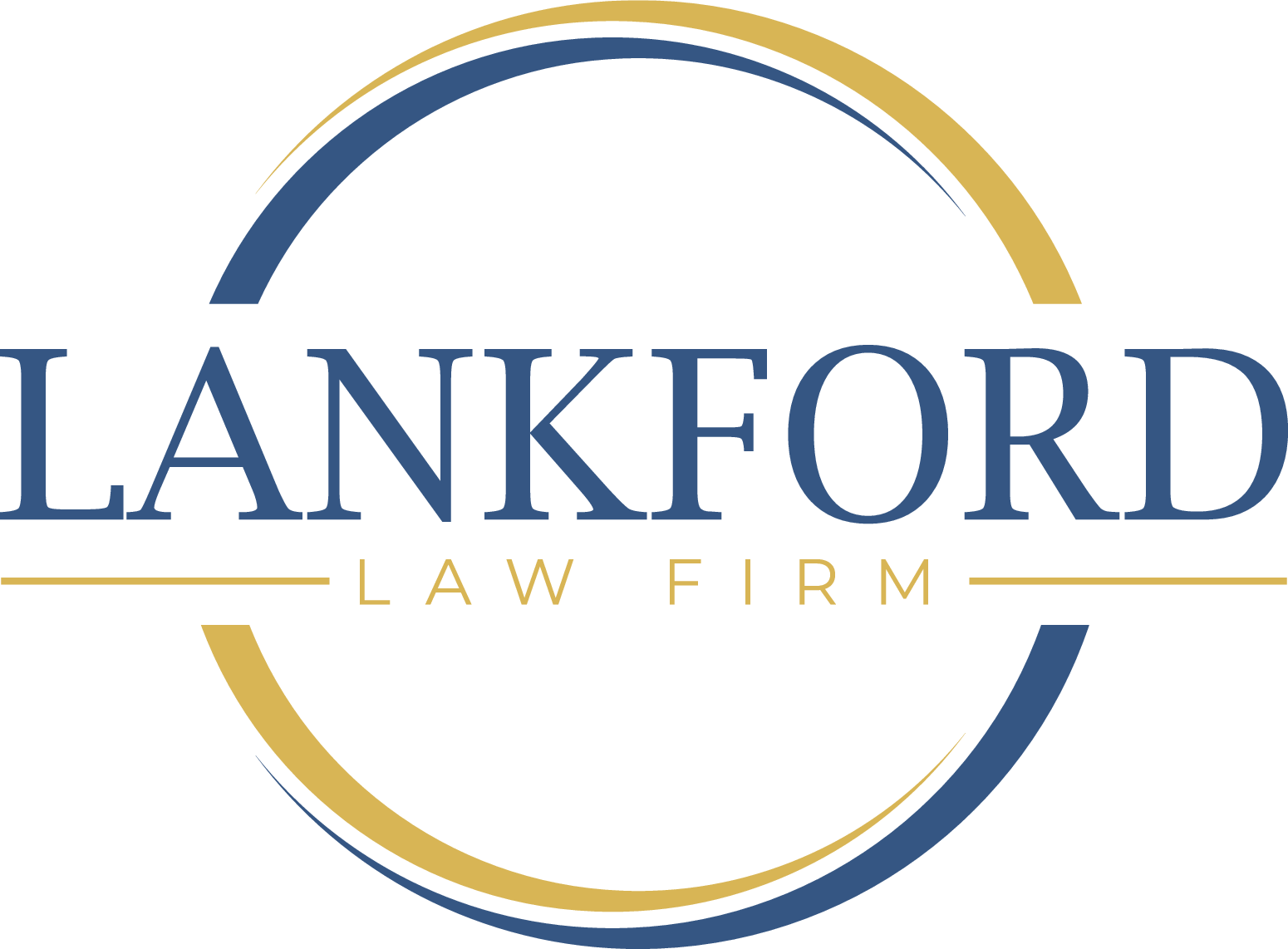If you ever receive in the mail what appears to be an invoice for trademark-related services, contact a good trademark attorney before you pay it. It’s probably a trademark scam. Trademark scams are on the rise in the United States, and a mailing that asks you to send a fee or payment is the “trademark” modus operandi, so to speak, of the trademark scam artists. If you receive any suspicious mail or email regarding your logo, speak to an experienced intellectual property attorney about that mail or email immediately.
A trademark can be any word, phrase, symbol, or name that identifies and distinguishes the products or services of one business from those of another business. Registering a trademark is not required by law, but if you own a small or mid-sized business, it’s a smart idea to protect yourself and to register your logo with the help of a good intellectual property lawyer. In central Florida, contact an experienced Daytona Beach logo attorney. If you have a logo, you want it to be registered and protected. Trademark registration provides your business with some considerable advantages, and it helps to protect you from logo infringement and from a number of common logo scams.
TRADEMARK RIGHTS AND RESTRICTIONS
Even if it’s never registered, you have some basic legal rights regarding your logo, but registration gives you the legal right to prevent others from using a confusingly similar word, slogan, or symbol. Trademarks for interstate and international commerce should be registered through the U.S. Patent and Trademark Office (USPTO). When you register your logo, it’s a legal, public record of the trademark’s ownership, and you acquire the exclusive legal right to use your logo, the right to protect it in court if necessary, and you receive a listing in the U.S. Patent and Trademark Office’s online database. Additionally, you may use the symbol “®” to indicate that your trademark is federally registered.
There are some restrictions. Under federal law, the USPTO may refuse to register a logo that is explicitly pornographic or that disparages a particular group. You are probably familiar with the ongoing controversy regarding the logo of the National Football League’s franchise in Washington, D.C., a logo that some believe disparages Native Americans. Almost every business in today’s marketplace works hard to create a positive public image, so for small business owners, the right trademark – clever, easy-to-remember, and offensive to no one – is a high-priority consideration.
A COMPLICATED LEGAL PROCEDURE
When you apply for a logo with the USPTO, you are initiating a legal procedure that may become quite complicated. That procedure will compel you to comply with all the requirements of the logo laws and regulations, so you’ll need your own experienced intellectual property attorney’s help. No USPTO attorney may provide legal advice to logo registrants. After you have retained legal counsel, the USPTO will communicate only with your attorney regarding your logo application.
Prior to having your logo registered, have your attorney conduct a search for similar trademarks already in use. Conducting a thorough logo search prior to filing your application is imperative because the results may indicate possible problems with your logo, such as the potential for confusion with a prior registered trademark or with a logo in a pending application. A comprehensive trademark search can save you the expense of applying in futility for a logo that you may not receive because another party has stronger legal rights to it.
CHOOSE YOUR TRADEMARK CAREFULLY
Applying to register a trademark is a long and often-convoluted procedure – it can take more than a year – that should be handled only by an experienced intellectual property lawyer. Provided that you routinely submit the renewal documents and that you don’t miss any deadlines, your logo registration stays permanently in effect. Any infringement of your logo by any other party constitutes grounds for legal action. It is legal for someone to model or base their own logo upon yours, but that trademark must be designed so that there is no confusion. Have your brand registered and acquire the legal protection that registration provides. Don’t wait. If you have an unregistered trademark now or in the future, register it promptly with a good trademark attorney’s help.
Only the U.S. Patent and Trademark Office can approve the registration of your brand, so before you register a trademark, select it carefully, because not every trademark is registrable with the USPTO. Nor – according to the USPTO – is every trademark legally protectable. That is, some trademarks simply may not be capable of serving as the basis for a legal claim by an owner seeking to stop others from using a similar trademark. Sometimes businesses and individuals choose for their product or service a logo that may be difficult or even impossible to register or protect for any number of reasons. Before you file a logo application, determine if the trademark that you want to register is registrable, and consider how difficult it may be to protect. An experienced trademark attorney will be able to provide the advice you need.
You should also consider a number of other factors before conclusively settling on a logo. Are the potential customers or clients in your target market or target demographic likely to remember and to pronounce and spell properly your selected brand? The most successful trademarks are short and easy to remember, like “Nike” and “Pepsi.” If you plan to market your goods or services outside of the U.S. with the same brand, find out first if it might have another meaning when translated into a different language, particularly if, for example, the translated word could be considered offensive.
TRADEMARK SCAMS ARE COMMON
You also need to be aware of trademark scams. They’re common, they’re everywhere, and in fact, as soon as you apply to register a logo, you’ll probably be targeted by the trademark scam criminals. Trademark applicants and owners routinely receive official-looking, trademark-related solicitations through the mail or through email. These communications sometimes claim to be official notices from the USPTO requesting payment of fees, and they’re usually formatted to look quite official and intimidating. Protect yourself from these criminals. If you receive these communications – and inevitably if you apply to register a brand, you will – you should know that they are trademark scams. They are not official notices from the U.S government, but instead they are deceptive attempts to trick logo owners into paying fraudulent fees.
If you have retained an intellectual property attorney to handle your brand registration, the USPTO will communicate exclusively with your attorney. Only if you do not have legal counsel will the USPTO communicate directly with you. All official correspondence – whether to you directly or to your logo lawyer – will come from the United States Patent and Trademark Office in Alexandria, Virginia. Email communications will come from the domain “uspto.gov.” If you receive an email from any other domain, it is not official. Be particularly careful when you receive a communication from a source with a name that resembles the USPTO name, including, for example, one or more of the terms “United States,” “U.S.,” “Trademark,” “Patent,” “Registration,” “Office,” or “Agency.”
HOW TO PROTECT YOURSELF
In response to logo scams, the USPTO has issued a warning to brand applicants and registrants. The International Trademark Association, the world’s largest network of trademark owners and professionals, has joined the USPTO and issued its own warning as well. How can you protect yourself from trademark scams?
- Read the communication thoroughly so that you can identify its source.
- Confirm that the communication comes from the USPTO in Alexandria, Virginia, or from an email address that ends with “uspto.gov.”
- Know what the USPTO’s official filing fees are. The USPTO publishes its fee schedule.
- Present the communication to your trademark attorney and obtain your attorney’s advice. You may simply be told to ignore or throw away the communication, or it may be something that should be reported to the Federal Trade Commission, which investigates and acts on widespread complaints about particular companies or business practices. Your intellectual property attorney will suggest the best course of action – if any.
- Trust your instincts. Question anything you receive that is unexpected or seems suspicious to you regarding your brand.
The federal government is actively prosecuting the criminals who run brand scams. In October, a California man was indicted by federal authorities for his role in a mass mailing scam targeting trademark holders. Artashes Darbinyan, 35, of Glendale, California, was charged in the Central District of California with twelve counts of mail fraud and four counts of aggravated identity theft. According to the indictment, from September 2013 through September 2015, Darbinyan operated the “Trademark Compliance Center,” which purported to offer brand registration and monitoring services. The indictment further alleges that Darbinyan sent mass solicitations to holders of trademarks recently registered with the USPTO offering, for a fee, to register the holders’ trademarks with U.S. Customs and Border Protection, and to send regular reports of potentially confusing or infringing trademarks. According to the indictment, Darbinyan never intended to, and did not, provide any of the services he promised.
If your small business requires legal advice or representation regarding a brand or any other matter impacting your company’s intellectual property, consult as quickly as possible with an intellectual property lawyer, and in central Florida, with an experienced Daytona Beach brand attorney. If a dispute arises regarding your trademark, your trademark attorney can defend your rights and interests using whatever legal tools are necessary. If you own a small business, don’t wait. Contact an experienced trademark attorney as quickly as possible about brand protection and the other legal services that your small business needs.
By: Melody Lankford
After graduating from Davidson College, Melody Lankford earned her J.D. from Florida State University’s College of Law in 2004 and was admitted to the Florida Bar that same year. Ms. Lankford joined Raydon Corporation as in-house counsel in 2004. She worked there until 2012, when she founded the Lankford Law Firm. She is an experienced Daytona Beach small business attorney who offers sound legal counsel and experience-based insights to her business clients.


 Call Us Now
Call Us Now Email Us Now
Email Us Now


